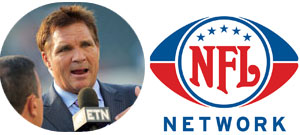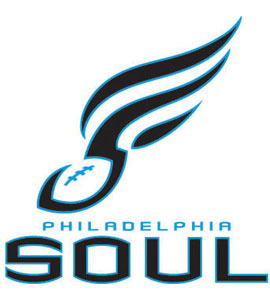PENN STATE FOOTBALL WEEKLY PRESS CONFERENCE WITH HEAD COACH JAMES FRANKLIN OCTOBER 13, 2015
admin
 Penn State Head Coach James Franklin
Penn State Head Coach James FranklinJames Franklin | Head Coach
Opening Statement
Thank you guys for being here. Some notes from the previous game, obviously 1-0, 5-1 overall. Only 28 teams in the country with five wins or better, 2-0 in the league, 5-0 at home – first time since 2008, so some pretty cool things there.
I think a statistic that really has a big impact in those things so far is we’re eighth in the country in turnover margin. We preach that all the time, the importance of that statistic. I think that’s been huge in our development and our opportunities to be successful. I think the other statistic that was big on Saturday was Penn State had 72 offensive plays, Indiana had 66 offensive plays. Indiana had been averaging 88 plays a game. They’d been in the 90s at times. So the offense, you know, being able to stay on the field and make plays was important.
Our defense continued to get three-and-outs and turnovers, and that changed how Indiana typically wants to play the game. So I think that was significant in the game. I think our possession time was 35 minutes to 25 minutes essentially. Played great complementary football: offense, defense, special teams. Defense has been pretty consistent all year long. The things that jump out to you are how we’re getting to the football with tackles for losses, sacks, things like that.
Offensively we were much more aggressive, made some plays. Still felt like we left a lot of yards on the field but made some real plays and took some strides there. So excited about that.
Some stats that jump out to you aer our defense is first in the nation in sacks, second in the nation in sacks per game, fifth in the nation in tackles for loss, sixth in the nation in tackles for loss per game, and then Carl Nassib leads the nation in sacks with 10 sacks and 1.67 sacks per game.
I thought it was interesting, too, looking at this week’s game – obviously Joey Bosa, the guy that everybody talks about all the time and the impact that he has in a game – Carl Nassib [and him] have similar body types, as well – big, long, explosive, athletic guys – but one of the things that’s interesting, just different kind of philosophies. Bosa has played 329 plays this year in one less game, in five games, and Carl has played 280 plays in six games. Just different philosophies. We try to rotate our guys. I think in our model it’s helped Carl stay fresh and make plays, but yeah, there’s a lot of different ways to do it. There’s a lot of different arguments you could make. I completely understand why they don’t take Bosa off the field. I’m hoping by showing this statistic that maybe they’ll decide to rotate him and keep him off the field a few plays come Saturday.
Some offensive notes, first career receiving touchdown by Brandon Polk, which was awesome. Wendy Laurent, first start of the season, he graded out a winner and played well for us.
Special teams, I keep talking about it week in and week out, consistency in our kicking, our kick location, we had a kick out of bounds, we had two missed PATs and our punt location was not what we want so we’ve got to keep working in those areas. Tyler Davis, really cool for him, notched his first career field goal and PAT kick, both on his first attempts. So happy for him. Talk about all the time, your opportunity, your number gets called to step up.
Offensive player of the week was Christian Hackenberg for our staff. Defense, we had two winners with Austin Johnson and Carl Nassib, and then special teams, Jordan Dudas. Jordan is a guy you probably don’t hear from a whole lot. We probably don’t talk about him enough. He’s a great example of a guy that everybody in our locker room respects, that comes to work every single day at practice and does a great job, and is really starting to show up on special teams. He had two special teams tackles in the game and is playing fast and playing aggressive.
Going to Ohio State, 5-0. They’re 2-0 in the Big Ten. Ranked No. 1 in both polls. Urban Meyer in his fourth season, three National Championships, you think about the last time that Penn State went to Ohio State, Ohio State beat us 63-14.
Offensive coordinator Ed Warinner, defensive coordinator Luke Fickell and special teams coordinator Kerry Coombs and then seven offensive starters, seven defensive starters and two special teams starters returning. The thing that kind of shocked me is looking at our roster, we always kind of look at teams we play each week and how many players we have from that region. We only have one player from the state of Ohio on our roster if I’m correct there, and that’s Chance Sorrell, and if you look back historically at Penn State, we’ve had some great players from the state of Ohio, so that’s something that we’re obviously looking at and want to do a better job there. It’s an area that we would consider in our footprint, and like I said earlier, there’s been a lot of good players coming from the state of Ohio who’ve had great careers at Penn State. We want to make sure that we’re continuing to do a good job there.
Q. What have you learned about your team’s identity and personality in the first six games, and do you expect to learn even more Saturday night than you have so far?
JF: Yeah, very much so. I think we’ll learn a lot this week. We’ll learn a lot Saturday. I think we’re resilient. I think we have found ways to be successful each week, different ways of doing it. We’re getting better, like every team in the country. You’re finding ways to hide some of your deficiencies or weaknesses and play to your strengths, and we’re doing a better job of that each week.
You know, but yeah, five games in a row at home, now going on the road to Ohio State, my first time ever going there, and to face that type of adversity and that type of environment is going to be a challenge. It’s going to be interesting.
Yeah, I think every day we’re getting closer as a team. We’re getting a better understanding of how to work together and how to complement one another, but Saturday will obviously be a real challenge. The way we look at it is a tremendous opportunity.
Q. I wanted to ask you about your scout team. I know you talk about those guys a lot and their value to the team on the practice field. I wanted to get your thoughts on the challenge of putting together a scout team offense this week that will give your defense kind of a real representative look at what Ohio State can do.
JF: I don’t think you’re ever going to get a real representation of what Ohio State is going to do from your scout team. Just like when we played Army, you know, to think our scout team is going to be able to replicate that type of speed and that type of precision, it’s not going to happen. I think our guys will work really hard and will rep the plays that we think we’re going to see, but obviously you’re not going to be able to replicate their tailback and their quarterback, [J.T.] Barrett and those guys, with your scout team. If you were, those guys wouldn’t be on the scout team. They’re young players that are still developing and learning, getting bigger and stronger.
But that’s going to be important for us. There’s no doubt about it. I do think there’s some similarities with how we prepared last week and how we’ll prepare this week, and what I mean by that is they have one quarterback who’s 250 pounds and can chuck it all over, and is more of a traditional pocket passer, and then they’ve got another guy who’s real athletic and can do both. That’s kind of what we had to prepare for last week because we didn’t know who was going to start and play in the game. So I do think there’s some carryover there for us.
Obviously J.T. is showing up more and more as a red zone option for them, and from what I hear, that package is going to continue to grow.
Q. What’s your kicking situation looking like heading into the week? How do you see the week goes, deciding on a guy for Saturday, and how did Joey [Julius] respond coming back to practice Sunday after a tough game?
JF: Yeah, Joey is our guy. It’ll be a competition like it is every week. But we’re not in the business of a guy has a rough day or makes a mistake of changing our plan or our mind. I mean, Joey is our guy. He’s done a great job all off-season. He’s working really, really hard. He’s grown so much in the last year that he’s been in the program. Now he’s going to have to come out and show it every single day at practice this week, and we’ll make a decision later in the week. But again, if we were playing today, Joey would be our guy, and we’ll see what happens and go from there.
Q. What do you need to see from Saquon Barkley this week that will tell you he’s ready to play, and also, how do you approach playing freshmen after they’ve been injured?
JF: Yeah, the days of the coach making decisions on who plays or not are long gone. They’ve been gone for a long time. We’ve got doctors, we’ve got trainers that make those decisions. Obviously we watch him at practice, we talk to them. We get an idea of where we think they are. But ultimately at the end, the doctors and the trainers will make those calls. That’s what they’re paid to do. That’s what their expertise is in.
I took a kinesiology class in college once. Didn’t fare so well in it, so I’ll leave those things to them.
Obviously we watch him at practice and we work together to put the best Penn State football program together we can out there on the field. But the doctors and trainers will do that. He practiced last week limited, he’ll practice this week limited. We’ll see what happens.
Obviously freshmen, you know, it’s different. Like I mentioned, I think, last week, we discussed this, you come back as a junior and a senior from injury and you’ve played a lot of football in your career. That’s different, compared to a freshman who hasn’t played a whole lot of football anyway and now he’s out a couple weeks. Getting that guy back ready to play is important, but no different than any other situation in life, how you handle it, this is an opportunity for growth for Saquon, an opportunity for him to really work on the mental aspect of the game and to handle adversity. We look at all these things as an opportunity to grow.
Q. Wendy Laurent, could you detail the progress and development he’s made since the beginning of last year, and how close is he maybe to being your starting center no matter the health of Angelo Mangiro?
JF: Yeah, he’s really grown. I mean, Angelo is our guy. He has, I think, a calming effect on our offensive line and our offense, how he calls and how he leads and identifies the front and makes adjustments he’s just played so much more football. But Wendy has done a great job. You could make the argument Wendy has improved as much as anybody in our program. I’d still like to see him be more verbal in terms of making the calls, taking control, getting everybody on the same page, but he’s really played well. I’m really, really proud of him. He’s stepped up when we needed him to step up. I think he does — the point you’re making I think is accurate. He does create some flexibility for us. Whether now — he’s made the argument that he needs to be on the field, so whether it’s Mang playing guard or whether it’s — Angelo Mangiro, we call him Mang, or whether it’s Mang playing center and Wendy playing guard, I think both of them create some flexibility.
So whenever you can put a guy in the game and he grades out a winner and helps your opportunity to win in a real positive way, you know, that’s a good thing. He’s been able to do that the last couple weeks. We’re going to build on it.
Q. You took more deep shots on Saturday with the passing game. How did you feel it went, and do you think it excited your offensive players to have that going for you?
JF: Yeah, I think it excited the offensive players that the ball was thrown to. You know, I don’t know if it excites the guys on the other side of the field watching the ball 70 yards fly through the air. I think it excites the fans. Yeah, it’s fun. I mean, we want to be able to have long runs. We want to be able to have long catches. We want to be able to make big plays on defense, interception returns for touchdowns, all those things. Yeah, it’s exciting, it’s fun. I also think it’s fun to be able to force your will on your opponent and be able to run in a real physical manner and grind things out. You’ve got to be able to do both.
So yeah, it was fun.
Q. How did you think it went?
JF: It went good. I thought it went good. It was fun and it went good. We scored some points. I think we can be even better.
Q. An awful lot of news this week, in the last week or so about college football coaches, all of it seemingly related to threats and pressure of the profession, and I wonder how you deal with that and how maybe unique you think it is at Penn State?
JF: Yeah, you know, I’ve never really been a person that has kind of felt that way. You’re so busy just doing the job or being the dad or being the husband or being the coach or whatever it is that you don’t spend a whole lot of time dealing with those things. I will say, I don’t know if you guys remember a year and a half ago when I came in here and I had the high top box fade rocking before I went bald, I think obviously the time, the hours, all those things and running in different directions, yeah, all those things factor in.
But I’ve never really – in my playing career, in my coaching career – never really kind of looked at it that way. It’s just like we talk to quarterbacks, some people think there’s pressure in playing the position of quarterback. If you look at it that way, you’re probably not a quarterback. So I don’t look at it that way. Got a great opportunity here at Penn State. Is this place different? Yeah, because there’s really high expectations and there’s tradition and there’s history, and although we’ve been through some challenges the last four years, people don’t want to talk about that. They want to talk about 1982 and 1986 National Championships, and I get that.
We embrace those things. We just wake up every single morning, put a great day’s work in to build this program to where everybody wants it to be. I will tell you this, it’s probably emphasized here with our staff and our fans and our alumni probably more than any place I’ve ever been, and that’s why this place is so special and that’s why I love it, is people want it all. What I mean by that is it’s not a win-at-all-costs place. This is a place that truly values our guys getting a real education and world-class education. They want to see our guys making a positive impact in the community. They also want to see our guys being successful on the field, and they really don’t want to give up one for the other. They want them all.
But I also know when you want that and when you’re trying to build that, it takes some time. You can come in and there are quick fixes, but usually with most things in life, just like I tell our players, things that come quick go quick, and there’s usually risk associated with quick things.
You know, that’s why to me this place is a special place, and that’s why I think it aligns with my values and why I got into this profession in the first place, and our staffs, as well, and I think our fans. That’s really important to them, as well.
Q. Obviously Ohio State is really loaded at the quarterback spot, and they use [J.T.] Barrett a lot more in the red area last week. What makes him a little different inside the 20 than the other guys that they have?
JF: He’s just a really, really dynamic athlete. I mean, it’s amazing — you look at Braxton [Miller], we watch him on film — he’s playing wide receiver right now like he’s played wide receiver his entire life. It’s impressive, and I think Braxton is that type of athlete. He can throw it, he can run it with the ball in his hands. He’s special.
So it just gives you another option that you have to deal with, no different than we talked about after Saturday’s game. You know, [Christian] Hack[enberg] pulling it down and taking off for a couple big runs was significant in the game. Two rushing touchdowns, you know, we talk all the time about quarterbacks needed to pick up two first downs with their legs a game. It causes headaches. You defend the run, you defend the pass, and now you’re trying to defend the pass, and the quarterback takes off on you.
You know, Hack is competing right now with Barrett to be the No. 1 dual-threat quarterback in the Big Ten based on last week’s performance, but you know, Hack is doing great. I’ve been really pleased with him taking on a little bit more roll than that in his job. But yeah, Barrett is something that you’re going to have to deal with, and I can see the way — as effective as it was on Saturday with him, I can see his package continuing to grow.
Q. There was a situation on the sideline with Mark Allen and Charles Huff that was caught on video. Can you explain what happened there, and does a coach ever have reason to put his hands on a player in a way that some people might view as aggressive?
JF: No. Yeah, no. That was something that’s been addressed very clearly with our staff. Individually me and Charles had a conversation about that, had a conversation with the overall staff. There’s obviously a lot of details and specifics that go into it that we don’t need to get into right now. I know who Charles Huff is as a man, I know who Charles Huff is as a coach, and those things have been addressed. So yeah, there’s not a place for that.
Q. Will you guys try to go inside at all this week to try and get some crowd noise going or will you just pump that outside? What can you do with this offense to get them ready for what seems like it’s going to be a pretty loud environment?
JF: Is this based on the tree or the dorm that you watch all our practices from so you want to know whether you should be out there this week? You don’t want to waste your time if we’re going to be indoors, change your plans?
You know, actually, we use noise every week. I learned a long time ago in my career that we started preparing for the noise the week of a game like that, and it’s too late. So we’ve been doing it since camp. We’ve done it every single week at least one period. We do it usually when we do our half line skelly drill good-on-good against each other. We incorporate that each week. Obviously this week it’ll be magnified, but whether we’re outside or inside, we feel like we can create enough noise at practice to be able to do that. We have these monster speakers that roll around. So really whether we’re outside or inside will be more based on the weather.
We’ve had plenty of practice in the rain. I don’t think we need to do that anymore. The only thing that’ll determine whether we go inside or not will be the weather, but the noise we feel like we can create enough noise with these speakers. I actually had to go to the doctor earlier in the year because I thought I blew my ear out at one practice. So yeah, I think we’ll be able to create that type of environment outside or inside. It’ll be more weather-based.
Q. You talked earlier about the opportunity of playing a No. 1 team. How do you balance getting that across to your players with taking it one week at a time, that sort of thing? Do you play it up at all, that listen, this is a once-in-a-lifetime opportunity or a-couple-times-in-a-lifetime opportunity?
JF: No, we try not to do that, again, because I want to keep our plan consistent. I will say on Sunday when we met and reviewed the game film and tried at that time — we tried to kind of enjoy the win for a few more hours before we get on to the next opponent, but we’re kind of reviewing the positives and the negatives from the game, and I talk about being 1-0, they should be really proud of that, and winning the last five, they should be really proud of that, and being 2-0 in the Big Ten and being really proud of that. And then I did say, hey, what an unbelievable opportunity we have this week being able to go play at Ohio State against the No. 1 team in the country. What a great opportunity.
And then after that it won’t be discussed the rest of the week. The rest of the week it’s what are we doing on Monday in our normal preparation, what are we doing on Tuesday, Wednesday, Thursday, so on and so forth, and go from there.
But there will be enough of that from the outside. We don’t need to do that internally. We want to keep our approach consistent.
Q. Given the fact that this will be the first truly hostile crowd you’re going to play in front of this year, how important is communication on the field between some of the units like O-line, D-line, looking at the fact that you’re going to be playing in front of a lot of noise and the hostility and everything?
JF: Yeah, I think that’s important. There’s been some hostile environments that we’ve dealt with after the first week – was a hostile environment on social media so they dealt with it then. It’ll be a hostile environment Saturday night. Communication is everything. Communication is important in your business. Communication is important in your family. Communication is important on the football field. I think it’s the number one trait or characteristic that you have to have in any successful relationship. And obviously that is challenging when you’re on the road in these type of environments where you may not be able to hear the quarterback’s cadence.
We have a huge advantage here when we play at home where a lot of quarterbacks have a hard time using cadences and communicating, so we have a tendency to get a bunch of penalties on the opponents that come into our stadium, and it also allows our defensive line to get tremendous get-off because they’re going with a silent cadence that’s usually on a rhythm. That’s one of the hard things about going on the road.
It’s the defense being able to communicate. If you get into these offenses and they’re look-look offenses which means they get up to the line of scrimmage, they use a false cadence, they look to the sideline, they’ve seen what kind of defense you’re in. They’ll look to the sideline and either check the call or not. They’ll be able to do that. Well, when we’re at home and a team does that, Brandon Bell or Jason Cabinda or whoever it is, they’re able to keep the defense the same or communicate the check. Well, now it’s going to be hard to communicate the check, we’re going to have to signal the check or have the entire defense look to the sideline. So there’s issues. There’s issues on offense, there’s issues on defense of getting everybody on the same page, and typically that’s where you have problems. That’s where you give up big plays on defense or that’s where you give up negative yardage plays in protection and things like that on offense is when four out of the five offensive linemen are doing one thing and the fifth guy is doing something different, or on defense you’ve got one side of the defense playing cover-two, and you’ve got the other side of the defense playing man coverage, and we’re not coordinated. That’s where you give up big plays and that’s where that communication is so important, to eliminate those things.
Q. You’ve talked about coaching to hide your weaknesses, mask your weaknesses while also trying to play to your strengths. At what point I’m wondering can you try to play to your strengths while trying to improve those weaknesses, maybe a specific example being you have a strong armed quarterback who can throw it down the field but he needs time to do that, and the more you call those plays the more chances the offensive line gets to rep that out and protect him in an in-game situation?
JF: Yeah, I think that’s always what you’re trying to do. You’re trying to hide your weaknesses and play to some of your strengths, but you’re also trying to build on those weaknesses so they’re not weaknesses anymore.
I think to think that you’re going to do those things in games, yeah, but 90 percent of that is going to come in practice. It’s going to come in practice going against our defense. That’s going to go against our scout team, which our scout team defensive line right now with Shareef Miller and Kamante Carter and [Robert] Windsor and Kevin Givens, they gave us a great look. But yeah, it’s a combination of both. I mean, you need to be getting better. Your weaknesses as the season goes on need to turn into your strengths at some point.
Q. You talked a little bit earlier about winning the time of possession battle versus Indiana, but this year so far you’ve lost it four of six times. Going into a game against a team like Ohio State that likes to wear teams down with the power run, are you concerned about that?
JF: No, but I love how instead of talking about us winning this past week we want to talk about the last four. Yeah, time of possession and controlling the ball and reps are always important for the offense and defense, and I look at the positive strides that we’re making in those areas, so yeah, it’s a concern. But we did a great job this past week.
Q. Teams have been able to hang with Ohio State for the first half or so and then they’re scoring 60 percent of their points in the second half whereas you guys are scoring 35 percent of your points in the second half. Is that a concern and what can you do to try and fix that when you have those two opposites?
JF: I think that’s a great example of their depth and their talent. They wear people down, and people are able to sustain them — people are able to sustain them, and then over time their good players and their depth and their size and their strength wears people down. It’s no different than a lot of times in my past where you’d have a 1-A team playing maybe a 1-AA team and a lot of those 1-AA teams can be competitive for a half but you start to wear people down, and that’s what you’ve seen at places like Ohio State and what you’ve seen on film. They’ve been real competitive in the first half, and they’ve worn people down.
So yeah, it’s obviously something that we’re aware of and need to do a good job of and continue to build momentum and make plays. Right now our defense, you know, for the last couple years in the time that I’ve been with this defensive staff, you know, they’ve been able to do that. You look at Ohio State, a lot of their scoring in the second half are big plays. Their tailback, it seems like every game he has two or three runs of 60 yards or more. So being able to stop the big plays if something is really important — I think you guys remember last year going into the Indiana game, their running back had rushed for over 100 yards 10 straight games, had big runs, and we were able to help there.
That’s something our defense has done a good job. We put a huge priority on it every single week, creating big plays with our offense, stopping big plays with our defense, and that’s going to be really important this week because they are fast. They are fast at wide out. They are fast at running back. They are big and physical on the offensive line.
Q. We’ve talked a lot this year about wide receiver separation and things like that. With their aggressive secondary, what are some things that can be done, to take advantage of their aggressiveness?
JF: It’s interesting, how they play defensively, it’s almost like their corners have no responsibility whatsoever in the run. They basically play press-man almost all the time, and they lock those guys down, and those guys are cover guys. You know, they’re big, long, physical guys that can really run. They do a really good job of eliminating the big plays from that perspective. But that’s something that we need to look at and try to take advantage of. There’s no doubt about it.
Again, the specifics of that I don’t really want to get into at this point, but there’s no doubt that basically they tell these two corners, the two outside receivers, eliminate them from the passing game, let us other nine guys worry about stopping the run, and defending the pass of everybody else. Some people have been able to take advantage of that at times. Not very often.
Q. Adam Breneman is a guy who we talked about, such a leader for you guys. Will he continue to run the scout team and what would it mean if you could get him in a game this year?
JF: I love how you guys found in the video, you found the slide where he was the scout team player of the week last week. You guys are relentless. I love it. Details, I love it. It’s all about the details.
Yeah, at this point he’s still going to do that. That’s kind of where he’s at in his progression to getting back on the field at some point. Again, we’re going to take those things slowly, and those things are going to be medical staff decisions.
Q. You’re focusing on Ohio State this week, but with all the news that’s come out out west, especially with a young coach losing his job over some troublesome things, are there any personal lessons that you take from watching some of these situations happen around the country, especially because you are young in your job?
JF: Yeah, we talk about those things all the time. I think you guys have heard me say before, whenever there’s any issues, social behaviors, whether they’re dealing with drugs, alcohol, relationships, we show them to our players all the time in team meetings. We talk about these things — every morning we have a staff meeting at 7:00 a.m. and we kind of go over these things, as well. We talk about these things in general. You know, even when incidents don’t occur, just the importance — we send out mass texts to the team with reminders of behavior. We send mass texts out to the staff every single week with reminders and things like that, because you hope that you can learn. You hope that you can learn from other people’s mistakes without having to go through them yourselves.
We’re human. People make mistakes. But we want to try to limit those things as much as we possibly can because we always want to represent Penn State the right way and handle things with class.
So it’s a challenge. It’s a challenge. You know, again, I’ve got 125 players, probably about 35 staff members. My wife keeps me in check. I try to keep everybody else in check, and we kind of go from there.
But yeah, it’s something that we talk about and try to learn from every single day, and I’m not talking about any one specific coach or any one specific situation, just in general. Just in general.












